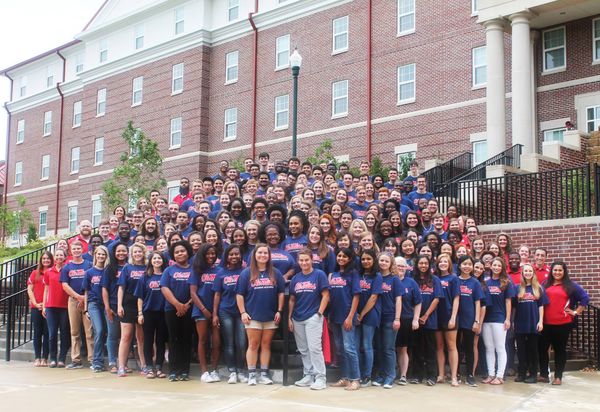Perhaps if I continued running through hollow beams of houses-to-be or drawing floor plans in my sketchpad, I would find myself sitting in an industrial care classroom instead of an anatomy lab. And as much as I assured my parents, I would be an architect, here I am at the start of my senior year of high school applying for colleges as a biochemistry major. Even so, my parents are not surprised. My childhood days were spent reading scientific articles, examining rocks in the driveway, and conducting my own experiments at home, which clued them in that I was always meant for a life in science. Since middle school, everyone knew that I was passionate about science. Then it only makes sense that I was nominated in natural science for the North Carolina Governor's School program during my summer after junior year. How many other high school students have stuffed animal microbes for fun? Before Governor's School, I was fully convinced I was the most passionate science student besides the guys who dreamed of being future engineers. I stacked my science classes in high school and if there was not an opportunity for me at every turn, I created one.
But what I failed to recognize are the other women who are just as driven as me in math and science. I was wrong to think I was the most zealous science student. Other women are guarded by society's expectations, unable to be successful in a career of chemical engineering or microbiology -- their dream profession. The time I spent at Governor's School made me aware of the prominent discrepancies in the gender gap of careers. And when my Area III class organized Project Unity, where each student had a chance to voice an issue that mattered to them, I advocated for more women in STEM. I consider it a failure of mine, even at seventeen, to be so late in the process of uplifting women in the name of STEM. Not all women have the courage to proclaim their love for math or science, and why would they? After living in a country that dedicates their time to ensuring Glass Ceiling is in place, it only makes sense why women feel so alienated when declaring a major in STEM. It only makes sense why more than half of the women who enter STEM majors or careers, never finish. It only makes sense why most notable scientists and mathematicians are men.
Recommended for you
As a science student, the statistics were unraveling. Women make up more than half of America's workforce (57%) but comprise less than half the population in STEM. Conversely, women of color are at an even larger disadvantage, being only less than 10% of the overall workforce in science (National Girls Collaborative Project 2016). Hearing the statistics only pushed me further in my pursuit for a STEM career.
However, it is much more than that now. As a student, my primary goal was to pursue an undergraduate STEM major (and later medical school) and that has been very much the plan since preparing for college, but since the seminar I attended at Governor's School, I want to influence other women to do the same. Women who may feel discouraged or intimidated by the lack of female role models in science are not likely to continue their education -- or even try. I want to have a voice that stands for equal representation and women empowerment. I want to have a voice that carries my passion for STEM to females who may need encouragement. I will only be successful if I remain diligent when creating awareness for gender gap discrepancies. Issues cannot be solved unless acknowledged, and this is something many of us need to open our eyes to.*
Ask women in STEM about their experiences, you will be surprised by their stories!
For more information, check out the National Girls Collaborative Project.
*Many research universities are aware of the gender disparities and have installed women leadership programs in the math and sciences. However, women are still underrepresented in their labs, facilities, etc. More often mistaken as cleaning staff, women, even at prestigious research universities, are still disrespected.
Statistics. (n.d.). Retrieved August 10, 2016, from https:ngcproject.org/statistics


















